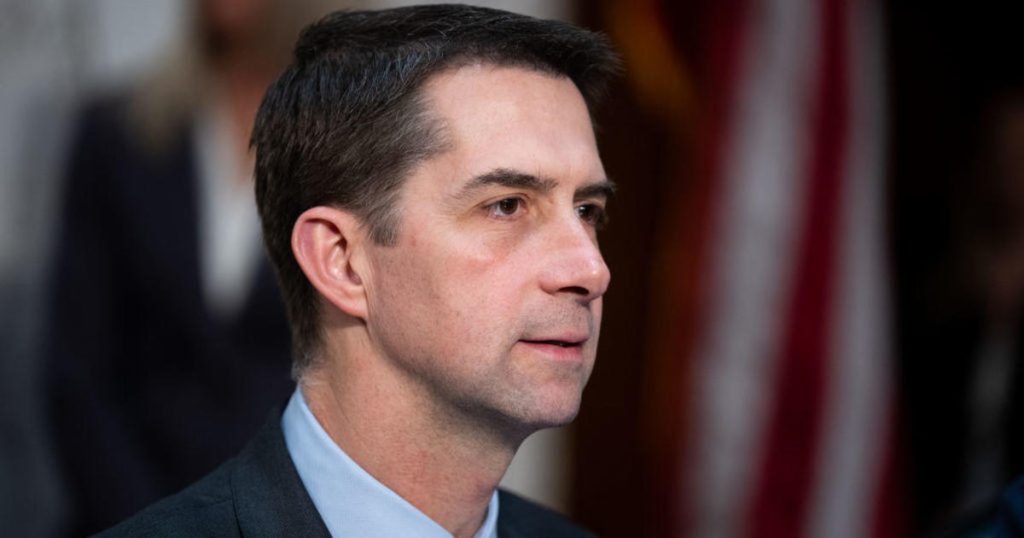Online threats and hateful rhetoric against pro-Palestinian protesters have seen a significant increase following comments made by Republican Sen. Tom Cotton encouraging people to take matters into their own hands. The nonpartisan organization Advance Democracy conducted research and found that there has been a surge in calls for violence against pro-Palestinian protesters across social media platforms, with users making threats to kill or injure protesters. Many of these threats were directly linked to Cotton’s comments, as well as to right-wing accounts and personalities who shared the post online.
Users on platforms like Truth Social, owned by Trump Media, made comments advocating for violent actions against protesters, including suggestions of shooting, mugging, hanging, or throwing protesters off bridges. Some even suggested extreme measures like ripping arms off or cutting off hands of protesters who glue their hands to roads. Cotton’s original post called for people to take action against the protesters blocking traffic, accusing them of being pro-Hamas without providing any evidence. This led to protests shutting down major roads and bridges in multiple cities, resulting in arrests but no reports of violence.
Cotton continued to promote a vigilante approach in subsequent interviews with Fox News and NBC News, suggesting that people should take action themselves to remove protesters from blocking roads. This is not the first time Cotton has used charged language when discussing nationwide protests, as in a 2020 New York Times op-ed where he advocated for sending in National Guard troops to stop protests after the murder of George Floyd. Advance Democracy’s Daniel Jones criticized Cotton’s comments, stating that they are irresponsible and dangerous, leading to a surge in online calls for violence against protesters. He also noted the lack of condemnation from other political leaders contributes to the normalization of violent rhetoric.
Advance Democracy, led by Daniel Jones who was a former investigator for the Senate Intelligence Committee, conducts weekly monitoring of far-right media, foreign state media, and select social media platforms to track online threats and hateful rhetoric. The organization’s research found a direct correlation between Cotton’s comments and the increase in calls for violence against pro-Palestinian protesters online. CBS News reached out to Cotton’s office for comment on the issue but did not receive a response. Overall, the situation highlights the dangers of inflammatory rhetoric from political leaders and the impact it can have on online discourse and real-world violence.
The rise in threats and violence against pro-Palestinian protesters underscores the need for responsible leadership and the condemnation of violent rhetoric by political figures. Without proper condemnation, such language can lead to a normalization of violent behavior and put individuals at risk. The situation also raises questions about the role of social media platforms in regulating such content and preventing the spread of harmful messages. As tensions continue to escalate in the region, it is essential for leaders to promote peaceful discourse and dialogue rather than inciting violence and division among communities.















